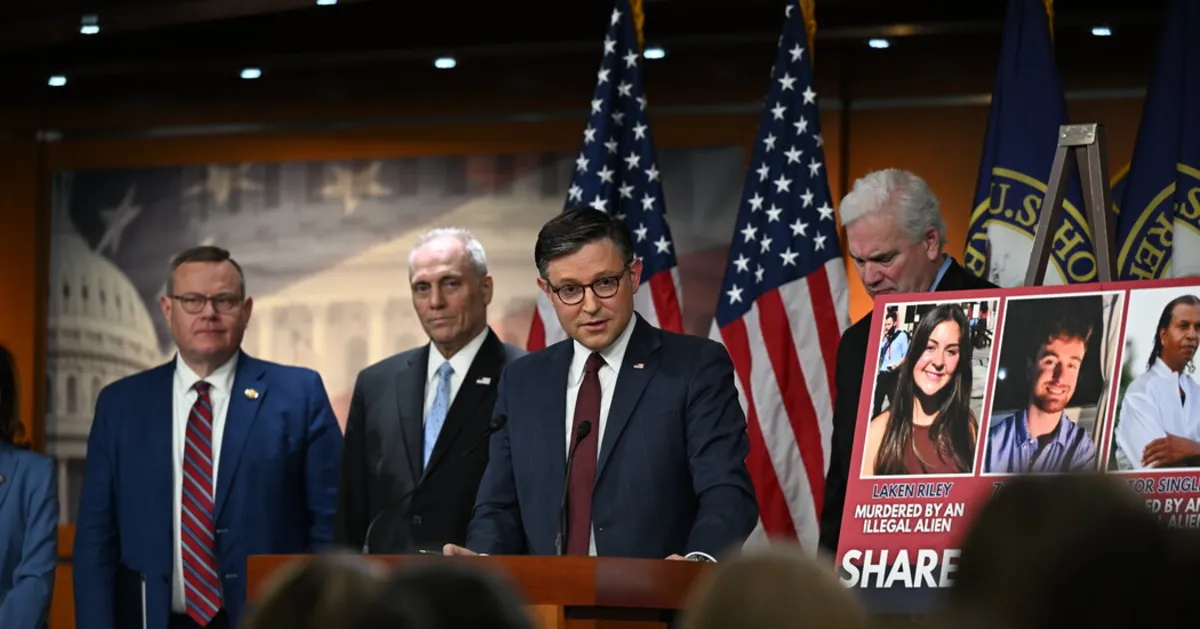
On Tuesday, Speaker Mike Johnson worked diligently to gather the necessary votes to push the G.O.P. budget resolution through the House. This effort faced potential defections from centrist Republicans, who were concerned about the prospect of significant Medicaid cuts, and conservatives who advocated for deeper reductions in federal spending.
Mr. Johnson announced plans for an evening vote on the budget outline. Approval of the outline would pave the way for implementing major elements of President Trump's domestic agenda. However, uncertainty loomed over whether Mr. Johnson could secure enough votes to adopt the resolution.
During a news conference at the Capitol on Tuesday, Mr. Johnson expressed optimism, stating that Republican leaders were “very close” to garnering the needed support. He also indicated that the vote might be postponed to later in the week, saying, “There may be a vote tonight. There might not be.”
In a bid to rally support for the budget blueprint, President Trump began contacting holdout members hours before the vote, according to G.O.P. leaders and lawmakers. President Trump has consistently advocated for the House budget plan, which integrates tax cuts and spending reductions into what he describes as “one big, beautiful bill.” This plan is favored over a narrower version passed by the Senate, intended to be coupled with another measure later this year.
Despite these efforts, it remained unclear whether President Trump's appeals were effective. Representative Jeff Van Drew of New Jersey, who voiced concerns about potential Medicaid cuts, mentioned having a conversation with President Trump on Tuesday. However, he was still deliberating on whether to vote in favor of the plan, noting that President Trump shared his apprehensions about reducing Medicaid.
Speaker Johnson faces a familiar challenge as he strives to mitigate discontent from both ends of his divided conference. He must navigate a razor-thin majority that leaves little room for defections. If all members are present and voting, and House Democrats remain unified in their opposition, Mr. Johnson can afford to lose no more than a single Republican vote. Several members have already expressed their opposition to the measure.
As the situation unfolds, the outcome of the vote remains uncertain, reflecting the complexities of passing a budget resolution amid diverse political interests and priorities within the party.